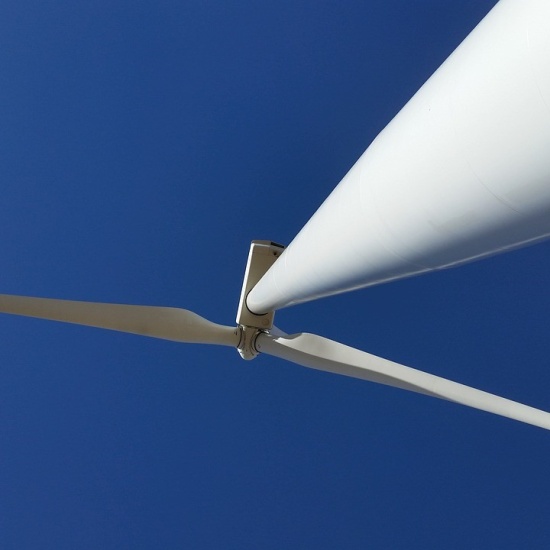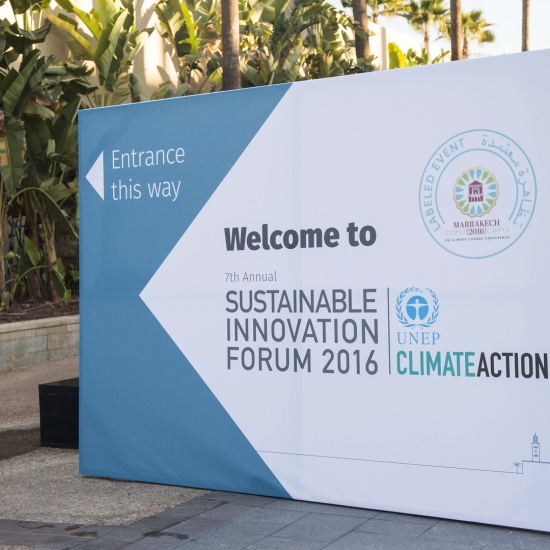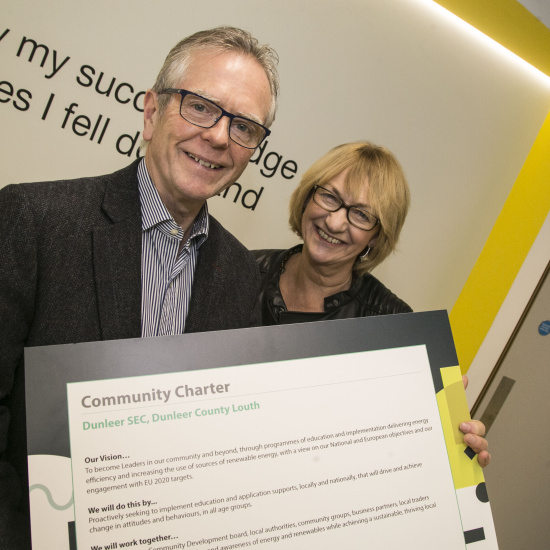How You Move Matters
Fergus Sharkey of SEAI and Professor Brian Caulfield of Trinity College Dublin recently shared ideas with broadcaster Sinead Ryan on reshaping Ireland's transportation landscape on SEAI's 180 Degrees Podcast.
Sinead Ryan, national broadcaster and journalist, opened the conversation around Ireland's transport from the 'How You Move Matters' episode of the 180 Degrees Podcast and how it can be more sustainable with the question,
"We are and remain a car-centric society. Is that a fair comment?"
Professor Brian Caulfield, Professor in Transportation at Trinity College Dublin, certainly thinks so.
"Yes, that's definitely a very fair comment. We're heavily reliant on our cars. (Ireland's) emissions profiles (in 2022) went up by 6 percent in transport, and they need to go down by 50 percent by the end of the decade. So, compared to other sectors, it's a tough job to get done by 2030. It's not necessarily a psychological shift that people across Ireland need to take. It's more a societal shift."
Fergus Sharkey, Head of Business Supports and Transport at SEAI, agreed with Professor Caulfield, based on the idea that Ireland has built itself to use cars frequently in structures in our everyday life.
"We are car dependent by design- we have designed our built environment to rely on cars, while at the same time we have underinvested for decades in public transport and therefore compounded that reliance on cars."
Planning and Building in Ireland
In the conversation, Sinead highlighted how moving towards more and better public transport infrastructure such as Luas line extensions and better bus services would involve being challenged around proposed planning and objections, as well as dug-up roads which inevitably slow the pace of any kind of change,
"Comparing Ireland to a city like Amsterdam or a country like Denmark, (where) certainly things get done a little bit more efficiently - are we looking at a much slower shift than we really need?"
Professor Caulfield even admitted how he finds it challenging personally;
"One of my students came up to me at the end of the class after I showed him all these kind of transport plans we have for Dublin. And he said, do you not get terribly frustrated, Brian?"
He does have some policy ideas in response, however.
"A cross party policy on transport may be a good idea, because if the Irish government were to change parties and somebody wanted to make an alteration, to the proposed Metro North rail line for example, that change could set us back four or five years."
"We need the right type of planning system for our needs. We've got to act as if we're in an emergency, because we are in an emergency."
Ireland's Car Dependency
One key statistic that really underlined Ireland's deep-rooted car dependency is how, as a country, we have the second highest car dependency in the EU.
"What are they (other countries) doing differently, Brian?"
Professor Caulfield noted how road infrastructure building has been prioritised and that there's been a lack of public transport investment over decades as key factors.
"A decade ago (in Ireland), it was 70% of people who drove. Last year, it was 69%. So in a decade, we dropped by 1%. That's the scary thing. And how we turn that around and how we accelerate that to the 20, 30% reduction we need to see in that, as per the climate action plan, is really is going to be really difficult."
Fergus also highlighted some positives happening right now, with public transport beyond Ireland's urban centres.
"Despite a huge amount to be done, there are success stories. Recent figures have shown how we've gone from 10,000 journeys being made a week in rural public transport in 2018, to 70,000 - a sevenfold increase. Before, bus companies would have defined the routes. Now you have communities defining the routes. Local communities like Dingle have worked with the local transport companies and changed the routes of the transport operators."
"The buses down on the Dingle Peninsula are now also 100% electric, increasing their passenger uptake from about 5,000 users in 2020 to close to 40,000 users in 2023, or 40,000 journeys. So the exponential opportunities are clear."
The Generational Shift
Fergus and Professor Caulfield also discussed another divide in transport habits and cultures, beyond the urban-rural difference - the generational shift; how different generations of people who have grown up with different transport cultures and how that influences their transport habits.
Fergus talked about how once upon a time cycling to school among children was common in Ireland but has become less so today.
"We need a vision and there is one in the Climate Action Plan, but people need to buy into that vision and they need to understand that it will improve our cities, our towns and our rural environments. And on a very basic level, people should consider the commutes of school kids, because it's a straightforward concept - anybody of a certain age probably cycled to school, and yet that commuting type has collapsed, in just 20 years, due to their parents' fears from the behaviour of people in cars."
Professor Caulfield also highlighted this generational change in behaviour as a key factor to consider.
"Younger people are far less inclined to purchase a car at a younger age than the recent generations before them. With the rise in the sharing economy featuring AirBnB, Netflix, as well as the remote working revolution, there's a collective realization that a car spends 95 percent of its time parked, unused."
"Also, if you're lucky enough to buy a home, the car is the second most expensive asset you're likely to own, and then it's only in use five percent of the time. And even if it's an electric car, it can be seen as wasteful - if wind turbines were only blowing 5 percent of the time, we'd soon stop building those."
Our Shared Transport Future
The All Ireland rail strategy published in 2023 recommends a significant electrification of the rail services in Ireland, including a significant expansion to the existing networks, recommending making single track rail lines into dual track.
Fergus pointed out why this strategy is so highly significant for Ireland's public transport future and the clear benefit of having dual over single track in Irish rail lines.
"As anybody who's on a single track line could tell you, you get delayed as soon as any train is delayed. So plans are in place to actually finally reconnect Donegal to the rail network, which requires multiple decade levels of investment and a consistency to not scrap these projects in favour of prioritizing road projects or other investment plans."
"It's also a cross border investment because of course our rail network is integrated with Northern Ireland, which will allow for more opportunities for what we would consider regional rail opportunities. Cork has its own Luas planned, while Galway has a very early-stage rail plan. Galway is an ideal city for light rail development."
Professor Caulfield also pointed to how that while this all-island rail infrastructure is a feasible future prospect for Ireland, we are faced with immediate mass transport issues to contend with.
"In the interim before more and more rail is a more common transport choice, the bus is going to be the biggest option that we have in Ireland because it will take decades for rail infrastructure to get to the right standard and to become safe and secure."
"There are currently lots of really good things that are happening right across the country, through initiatives like the Connecting Ireland Rural Mobility plan. It's just the speed at which they're happening (that's lacking)."
Transport Wish Lists
Concluding the conversation, Sinead asked both Fergus and Professor Caulfield what each of their idealised future visions of Irish public transport would look like.
Fergus pointed to the need for bridging the transport links between rural and urban Ireland.
"The more challenging piece in the puzzle is going to be our dispersed population in rural Ireland. Electric vehicles offer a lot of opportunity because the range of electric vehicles now and the fact that most rural dwellers have a way of charging them at their house means that the infrastructure challenge isn't as great."
"What we would really need a magic wand for would be active travel in both rural and urban environments, such as good quality cycle infrastructure for all. It's improving, but it's very sporadic. And I think that offers probably the biggest opportunity to get modal shift in the shorter term."
Professor Caulfield made the point of the need for altering Ireland's local political structures for more localised decision-making to make for better public transport options.
"For future Irish governments for the next few decades, what would be ideal to see are more politicians in the form of directly elected mayors for each of our cities."
"These mayors would ideally take control and ownership of their cities, which is what we already see across Europe or across the world. The cities that do well have directly elected mayors, somebody with a mandate that has the people behind them and they can implement key public transport policies, such as more cycling infrastructure."
"So in Galway, if we were to put a light rail line there, like we have here in Dublin with the Luas, it would probably take everybody in the city to use it on a daily basis to make money. Maybe we stop thinking about making money. Maybe we start thinking about making people's lives better and reducing our emissions."
Fergus shared how Ireland is at a place where there's much to be done in a short time for a better public transport future, however there's a collective interest to make this happen.
"The nature of Ireland's carbon journey is about a large amount that has to be done in a short period, coming from a place of not doing enough for a long period. We have targets and objectives to do these things. We have an ambition to do these things. And that is going to require significant change in a short period of time."



